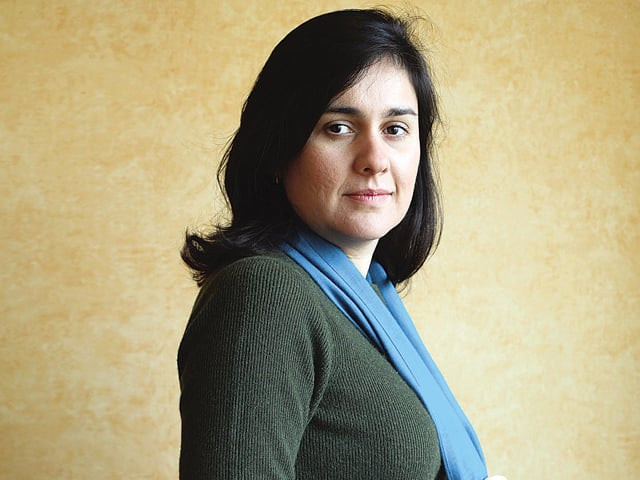No more writing about Karachi, says Kamila
Kamila Shamsie could not resist adding that “I am not a global citizen. I am a Karachi girl who lives in London.”

To stop writing about this city where she grew up was a conscious decision for Shamsie. She felt she needed to let go of the idea that she can only write about places she knew. “I may come back to writing about Karachi again, but for now, I have become rather impatient with the idea of nostalgia.”
It was with some difficulty that Shamsie’s fans found Scillinas hall, or as the hotel manager called it, “Shinilas”. Some of the people gathered at the hall on time so it was only fair when they got a chance to have an informal chat with this author of five novels with another one in progress.
Shamsie was quick to take the podium and chat away with the members of the audience who fired one question after another. “Has it become easier to write after so many novels?” “How do the characters come to her head?” “Does she read Urdu literature?”
“It gets harder over time. Knowing how it’s done really doesn’t help,” replied Shamsie. Her characters are images in her mind that stick around long enough for her to give them a personality. “I have to choose their names very early on to give my characters their personality.”
Admitting that she has limited exposure to Urdu literature, Shamsie explained that English has been the main language she spoke, read and wrote.
As soon as Karen Armstrong stopped talking in the ballroom, Ishrat Lindblad, the moderator, walked in. The first time Lindblad came across Shamsie’s writing was during a declamation contest at The Lyceum School, where her student read out an excerpt from Kartography. “The description of Karachi was so unlike the apparent ugliness of this city that it brought tears to my eyes.”
As far as her relationship with Karachi is concerned, Shamsie said that she has lived through three stages. The first stage was when she lived and grew up in this city. The second was when she went to study in the US but visited the city during winter and summer holidays. It was during these seven years that Shamsie did most of her writings. In the third and present stage, she has moved to London but “Karachi will always be my base”.
Lindblad pointed out that a sense of ‘loss’ is quite apparent in all her novels and Shamsie admitted that it is mainly because of her “laziness”. She explained that it is dramatically easy for a character to be longing for a lost one and that is what the characters of the Widow in ‘In the City by the Sea’ and Mariam Apa in ‘Salt and Saffron’ are based on. Once she realised that she was persistently using this theme, she decided to stop.
As the floor opened for another Q&A session, Shamsie was forced to pick her favourite book. “It is always the one I have just finished writing or the one I am working on,” she said.
Writing and reading, she felt, is a selfish process. When you get down to reading a book, it is just you and the text and the same holds true for a writer. “I am not thinking about the readers, or anyone, when I am writing. It is purely for me.” A member of the audience asked her if she felt the need to censor her work given the turbulent situation in the country. “I am not consciously aware of censoring myself but I hope I’m not doing it unconsciously,” she said.
Shamsie has started working on her new novel but she declined to give anymore details on it except that “it starts in 500 BC and ends now”.
Published in The Express Tribune, February 6th, 2011.



















COMMENTS
Comments are moderated and generally will be posted if they are on-topic and not abusive.
For more information, please see our Comments FAQ